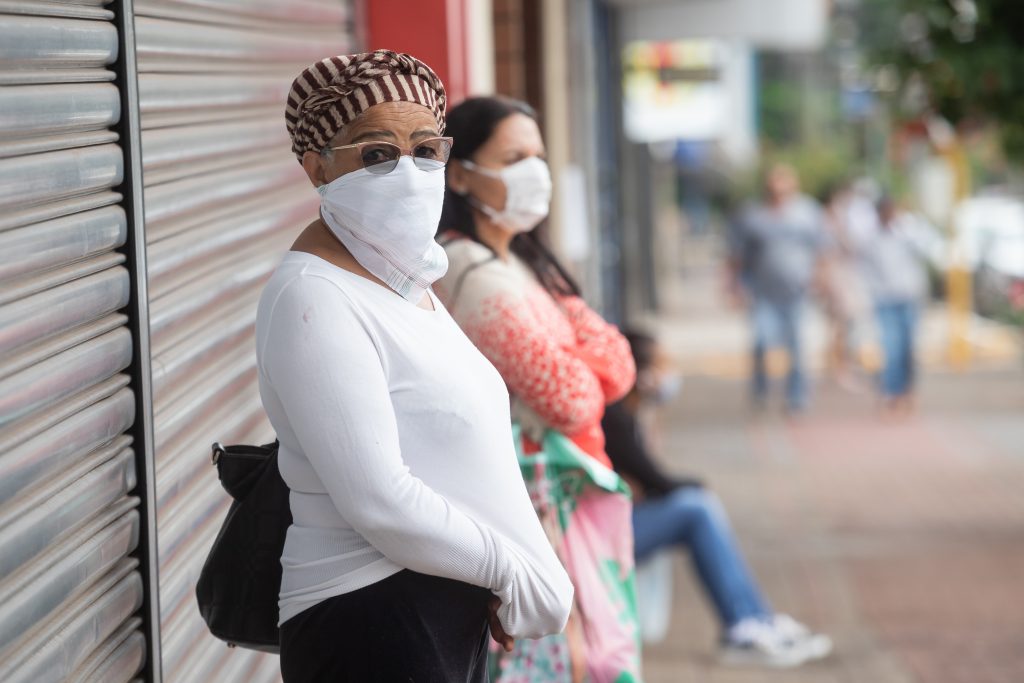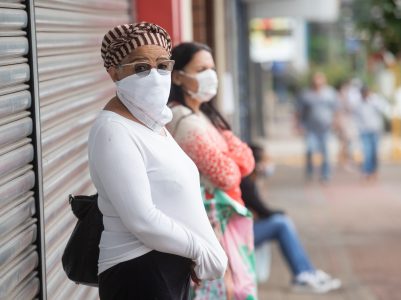By Sofia Caseiro – Polytechnic of Leira; G20 Interfaith Working Group on Gender Equality
– – –
The COVID-19 pandemic impacted society at all levels. With the pandemic and consequent lockdown, women’s position in society was deemed more vulnerable. A UN study shows that in 2020 gender equality was impacted by a 25-year setback. Data shows that women saw their load heavier by remote working, household work, children, support and care. Violence against women also increased; women were left alone and isolated with perpetrators, with limited contact outside to reach for help. Many women became caregivers to members of other vulnerable populations, most times harming their workplace positions. Women’s vulnerability increased during the pandemic economically, socially, and psychologically.

The Responsibility of Religious Communities
Recognizing the responsibility of religious communities in developing an inclusive, peaceful and respectful society, at the G20 Interfaith Forum (specifically within the Working Group on Gender Equality) we aim to create a space for fruitful and collaborative dialogue toward a better future. Through enriching conversations between stakeholders and community leaders, we try to improve our understanding in order to offer effective policy recommendations—in this case, regarding how women were impacted by the pandemic and what their role should be in the reconstruction of a post-pandemic society.
A society concerned with gender equality and promoting equal opportunities to every human being will undoubtedly need the support and action of religious leaders and organizations, which are woven inseparably into the fabric of every community, on every level. The 2017 Beirut Declaration enhanced the role of religions in promoting human rights, and, together, faith and civil society actors committed to pursuing 18 courses of action. Commitment V stated, “We pledge to ensure non-discrimination and gender equality in implementing this declaration on “Faith for Rights.”
A Conversation to Build for the Future
On the 1st of July, join us in understanding women’s existing vulnerabilities increased by the COVID-19 pandemic, and in discussing how women can intervene in post-pandemic reconstruction efforts to create a world where we can embrace gender equality as a contribution to striving communities and a peaceful society.
It’s an essential topic to look at as we move forward toward a post-COVID world. We need to discuss how the pandemic affected women as a vulnerable sector of the population, but also how gender equality is crucial in the post-pandemic scenario. In forming our policy recommendations for the upcoming G20 Interfaith Forum in September, we need expertise that is based on both experience and research—and the women speaking at this event are uniquely suited to provide that expertise.
Sadhvi Bhagawati Saraswatiji, Secretary-General of the Global Interfaith WASH Alliance (an international organization dedicated to clean water, sanitation and hygiene) and President of the Divine Shakti Foundation, is well-known throughout India and the world for her work with humanitarian causes, sustainable development and women’s empowerment. She serves on the UN Faith Advisory Council on Religion, and has been featured on CNN, NY Times, BBC, NPR and more.
Dr. Olivia Wilkinson directs the research of the Joint Learning Initiative on Faith and Local Communities (JLI), focusing on the role of faith actors in the humanitarian and development sectors. Since early 2020, she has assisted with the “Religious Responses to COVID-19” database project, which looks closely at how the pandemic has affected (and been affected by) religious actors and vulnerable communities, including women.
As the Gender Equality Working Group, we look forward to hearing from both Sadhvi and Olivia on this multifaceted issue, and encourage you to come with questions for the speakers.
“Covid has been a global catastrophe, wreaking havoc upon our economies, infrastructure, health, education and every thread of the tapestry of our lives. The impact upon women is especially profound as they are so frequently the caretakers, homemakers, health care workers and the ones playing such multi-faceted roles in both families and communities. As we plan and implement the rebuilding of our community structures, we must do so with deep awareness of and attention to revitalizing our commitments and engagement around gender equality and ending violence against women.” – Sadhvi Bhagawati Saraswatiji
– – –
Sofia Caseiro is an Assistant Lecturer at Polytechnic of Leiria’s School of Education and Social Sciences, and has worked extensively in the areas of human rights and gender equality. She currently serves as Co-Chair of the G20 Interfaith Forum’s Working Group on Gender Equality, and has a post-graduate in Human Rights and a Master in International Public Law and European Law at the Faculty of Law of the University of Coimbra.


